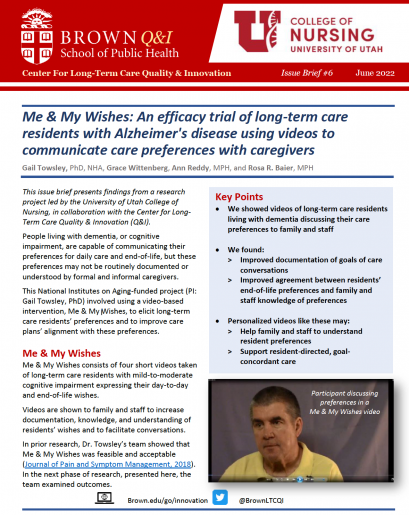People living with dementia, or cognitive impairment, are capable of communicating their preferences for daily care and end-of-life, but these preferences may not be routinely documented by long-term care providers or understood by family and staff.
A new Issue Brief highlights results from a project led by the University of Utah College of Nursing, in collaboration with the Center for Long-Term Care Quality & Innovation (Q&I). We evaluated the use of a video-based intervention, Me & My Wishes, to elicit long-term care residents’ preferences and to improve care plans’ alignment with these preferences. Videos of residents discussing their care preferences may increase documentation, knowledge, and understanding of residents’ wishes and facilitate conversations between residents and caregivers.
At Q&I we partner with researchers and healthcare providers to use real-world research strategies that accelerate effectiveness testing and the translation of research findings into practice. Our partnerships with other institutions, stakeholders and innovators allow us to conduct research that is closely attuned to the real-world conditions in long-term care.
Learn more about this study by reading the Issue Brief. Explore how Q&I partners with innovators and researchers.
Q&I ISSUE BRIEF #6: ME & MY WISHES USING VIDEOS TO COMMUNICATE CARE PREFERENCES

